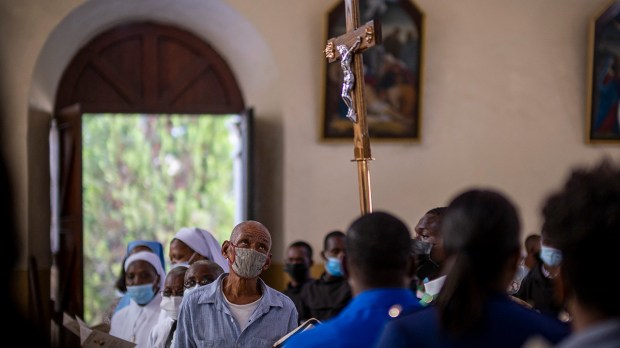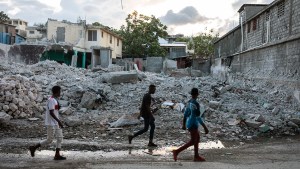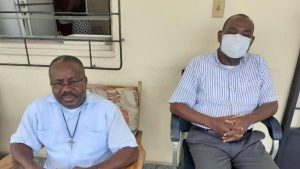Although it’s not public knowledge whether a ransom was ever paid to a Haitian gang for the release of a group of people including six priests, one of those clergymen believe that their ordeal, back in April, emboldened kidnappers to demand even more money for the release of a group of North American missionaries.
Millions more, in fact. When Fr. Michel Briand, a French national who has worked in Haiti for many years, and his colleagues were being held in April, the gang, known as 400 Mawozo, demanded $1 million for the release of all 10. Now, they are asking for $1 million for each of 17 captives, who are affiliated with the Ohio-based Mennonite group Christian Aid Ministries.
It also helps that the current captives are “blancs,” Fr. Briand said, using the French word for whites. Such targets command higher sums. The New York Times said Christian Aid Missionaries is gathering money to pay the ransom.
Gèdèon Jean, the executive director of the Center for Analysis and Research in Human Rights, an advocacy group in Port-au-Prince, said that at least 40 Church members, both Haitian and foreign, have been kidnapped since the beginning of the year.
“The Christian Church is in the eye of the kidnapping storm,” Jean said.
Clearly, what has changed in recent months is that in Haiti not even the Church, generally speaking, is respected anymore, and those who represent it — priests or lay workers — are targets for kidnapping just as much as anyone else. Until now, the Church was long a “pillar of Haitian society, with a history of supporting the population through difficult times,” the Times said — and therefore considered off-limits by criminal elements.
Fr. Briand is well aware that the victims of gang activity and their loved ones are in a very difficult spot. Every time a ransom is paid, gangs are encouraged to kidnap more people, but negotiating is also a difficult road.
“You can try to talk to these people, to give them nice speeches,” he told the newspaper. “But we will never get these people back. Morally, they are lost.”
The Times quoted Laënnec Hurbon, a Haitian sociologist and researcher at the French National Center for Scientific Research, who said the recent upsurge in the abduction of Church members in Haiti has signaled “a breakdown of social relations in Haiti.”
The Church had long been spared gang violence in Haiti, benefiting from its position as one of the last stable institutions in an environment marked by rampant violence and corruption. … Religious organizations retain great popularity, often filling the void left by a debilitated state, giving aid and food to the needy and acting as a social force that some residents say kept Haiti from falling apart.
In spite of the bleak picture, there are still small signs of hope, such as the tenderness Fr. Briand witnessed among some of the young men guarding him and his fellow captives. When the gang withheld food from the group of priests and lay people and a nun, one of the guards sneaked them what little food he could. And when the group was about to be set free, one of the leaders of 400 Mawozo hugged each of the captives goodbye and “asked us to pray for him,” Father Briand recalled.
The priest replied, “We’ve been praying for you from the beginning.”



